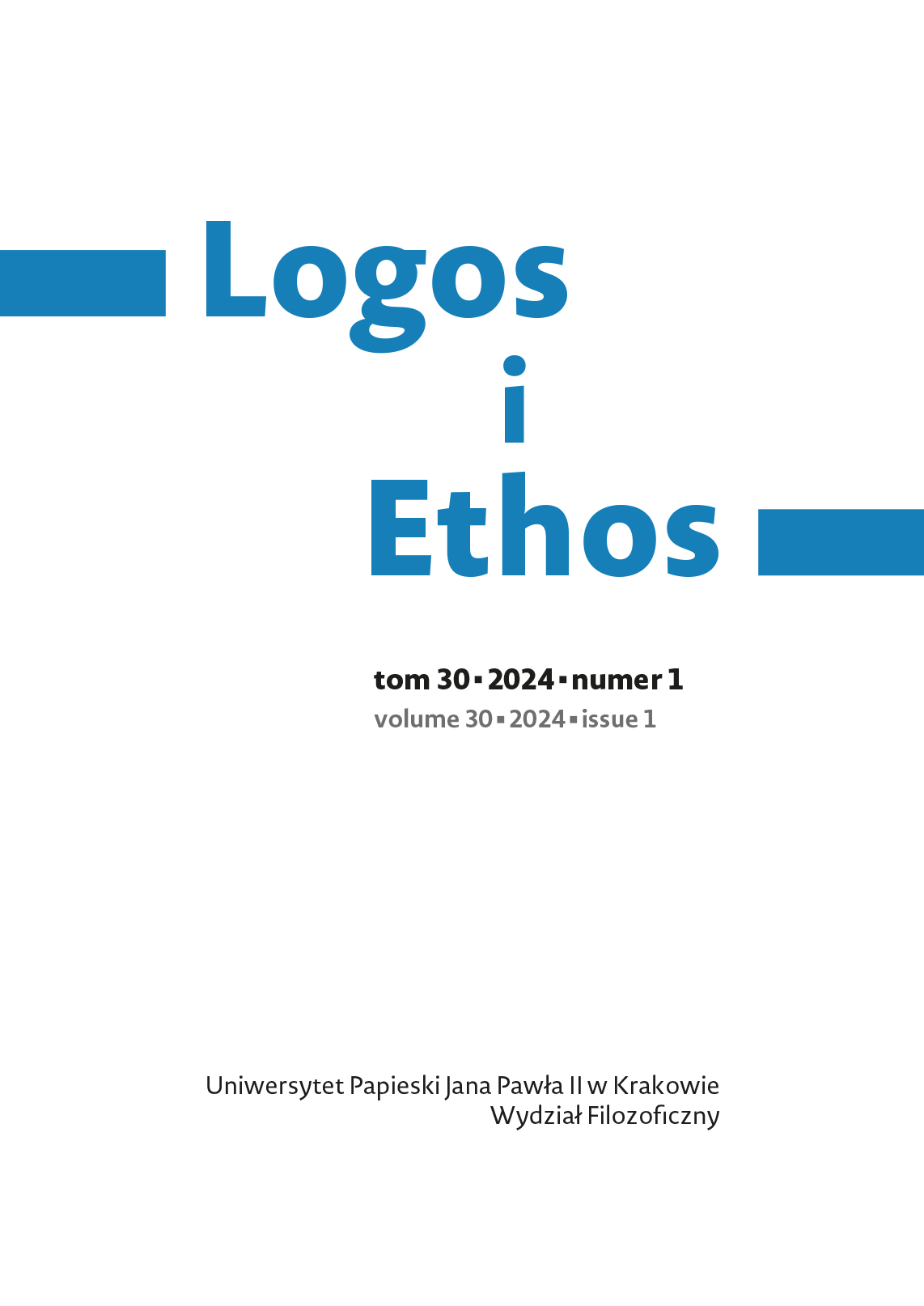Searching for relationship. Eros as a model of intersubjective relation in approach of Michel Henry and Christos Yannaras
DOI:
https://doi.org/10.15633/lie.30101Słowa kluczowe:
ego, Eros, fenomenologia, Henry, pożądanie, relacja, Yannaras, życieAbstrakt
Jest czymś paradoksalnym, że filozoficzne ujęcie relacji początkowo w ogóle nie odnosiło się do sfery intersubiektywnej. Co więcej, w interpretacji metafizycznej relacja jest czymś pochodnym w stosunku do tego, co wiąże. Zagadnienie intersubiektywności doczekało się wstępnych przemyśleń dopiero w drugiej połowie XIX wieku, zaś za sprawą fenomenologii, zwłaszcza francuskiej wysunęło się na pierwszy plan. Po odrzuceniu Husserlowskiej koncepcji poznania Innego jako Alter ego to w tym środowisku wypracowane zostały główne modele relacji międzyludzkich, wśród których doniosłe miejsce zajmuje fenomen erotyczny. Artykuł przedstawia relację erotyczną w dwóch ujęciach: Michela Henry’ego i Christosa Yannarasa, które choć wydają się prima facie sprzeczne, to jednak ciekawie uzupełniają się i naświetlają nawzajem. U obu relacja erotyczna jest pierwszorzędnym sposobem przeżywania życia, a jej fundamentem jest pragnienie. Obaj żywią przekonanie, że Eros jest relacją tragiczną, świadczącą o naszej skończonej kondycji. U obu opisy relacji erotycznej są niezwykle realistyczne, włączając w nią także konflikt i cierpienie. Obaj dokonują dekonstrukcji ego, której przejawem jest właśnie wydarzenie miłości. Wreszcie obaj rozwijają fenomenologię życia i umieszczają w jej sercu relację. Dzięki zestawieniu opisów Henry’ego i Yannarasa relacja erotyczna jawi się jako jednocześnie konieczna i niemożliwa, a więc jako paradoks.
Bibliografia
Barbaras R., L’Eros et la désublimation du désir, “Alter. Revue de phénoménologie” (2012) No 20, pp. 13–26.
Chrétien J.-L., La symbolique du corps: la tradition chrétienne du Cantique des Cantiques, Paris 2005.
Daniélou J., Platonisme et théologie mystique. Essai sur la doctrine spirituelle de saint Grégoire de Nysse, Paris 1944.
Depraz N., Comprendre la phénoménologie. Une pratique concrète, Paris 2012.
Depraz N., Eros et relation. Puissance générative et engendrement mutuel des pensées de Michel Henry et Christos Yannaras, “Alter. Revue de phénoménologie” (2012) No 20, pp. 27–38.
Depraz N., Phénoménologie de la chair et théologie de l’erôs, in: Michel Henry. Pensée de la vie et culture contemporaine, ed. J.-F. Lavigne, Paris 2006, pp. 167–181.
Grégoire de Nysse, Vie de Moïse, présenté par J.-Y. Leloup, traduit par J. Daniélou, Paris 1993.
Henry M., Incarnation. A philosophy of flesh, tr. K. Hefty, Evanston 2015.
Henry M., L'Expérience d'autrui: phénoménologie et théologie, in: M. Henry, Phénoménologie de la vie. Tome IV. Sur l’éthique et la religion, Paris 2004, pp. 155–163.
Henry M., The genealogy of psychoanalysis, tr. D. Brick, Stanford 1993.
Janicaud D., Le tournant théologique de la phénoménologie franҫaise, Combas 1991.
Karpiński P., Porażka erosa w fenomenologii Michela Henry’ego, in: Motyw miłości w wybranych tekstach literackich i innych dziedzinach kultury, eds. P. Szymczyk, E. Chodźko, Lublin 2018, pp. 43–52.
Karpiński P., Zwrot erotyczny w fenomenologii francuskiej?, “Ruch Filozoficzny” 77 (2021) No 1, pp. 89–112.
Marion J.-L., The erotic phenomenon, tr. S. E. Lewis, Chicago 2006.
Starzyński W., Miłość erotyczna jako paradygmat doświadczenia Innego w fenomenologiach Michela Henry’ego i Jean-Luca Mariona, “Fenomenologia” (2013) No 11, pp. 93–106.
Yannaras Ch., Variations on the Song of Songs, tr. N. Russell, Brookline 2005.
Yannaras Ch., Person and Eros, tr. N. Russell, Brookline 2007.
Yannaras Ch., Psychoanalysis and Orthodox anthropology, in: Personhood: Orthodox Christianity and the connection between body, mind, and soul, ed. J. T. Chirban, London 1996, pp. 83–89.
Pobrania
Opublikowane
Numer
Dział
Licencja

Utwór dostępny jest na licencji Creative Commons Uznanie autorstwa 4.0 Międzynarodowe.
Autorzy publikujący w czasopiśmie udzielają jego wydawcy zgody o następującej treści:
- Autor zachowuje autorskie prawa majątkowe do utworu, a jednocześnie udziela wydawcy czasopisma zgody na jego pierwszą publikację w wersji drukowanej i wersji online na licencji Creative Commons Uznanie autorstwa 4.0 Międzynarodowe oraz zgody na wykonywanie opracowań, w tym przekładów.
- Autor ma możliwość udzielania zgody niewyłącznej na opublikowanie utworu w wersji, która ukazała się w czasopiśmie (np. zamieszczenia go w repozytorium instytucjonalnym lub opublikowania w książce), wraz z informacją o jego pierwszej publikacji w czasopiśmie.
- Autor może umieścić swój utwór online (np. w repozytorium instytucjonalnym lub na swojej stronie internetowej) jeszcze przed zgłoszeniem utworu do czasopisma.

